ADSactly Literature: Benchmark Theater - The Glass Menagerie
ADSactly Literature: Benchmark Theater - The Glass Menagerie

We’ve talked, in the past, quite a lot about literature. But looking back at all the topics we’ve covered, I realize, with dismay, that there is one field of writing, a field that is very dear to me, which we’ve ignored almost completely. I’m talking, of course, about theater. While we have talked a little about William Shakespeare’s plays, we haven’t really explored much else and it seems a shame… There is such an incredible, vast array of plays and theater writings out there. And I think it’s time we delve into that world.
We’ve already encountered some theater classics, such as John Osborne, Eugene O’Neill and Sam Shepard and today, I would like to talk about another American favorite, by the name of Tennessee Williams (considered among the three most important playwrights of the 20th century, together with O’Neill and Arthur Miller).
And I know what you’re thinking. You’re thinking Streetcar, crazed, young, gorgeous Marlon Brando singing in the dead of night. Madness and betrayal. And we’ll get to that, I promise, but today, I’ve chosen another play by Williams, The Glass Menagerie, which preceded Streetcar and made Williams a sensation.
It was perhaps a staple of Williams’ writing that he drew from personal experience and many of his plays were more or less autobiographical. And ‘The Glass Menagerie’ was no exception.
The play tells the story of a strange, broken family – the mother, Amanda, and her two children, Tom and Laura. Tom is an unhappy and overworked man in his early twenties who longs to leave home and be rid of the burden of supporting his mother and sister.
Amanda is a histrionic woman, always craving attention and recognition. She is a typical Southern belle, now past her prime, who’s grown hateful towards her own children. Her main focus in life at the moment seems to be finding a suitor, a “gentleman caller” for her daughter Laura. Even though, when one arrives, she is more interested in flirting with him herself and re-living her youth.
Laura, in turn, is a terribly shy young woman, slightly older than her brother, Tom, and positively terrified of the world outside. A childhood battle with polio has left her with a slight, but noticeable limp, which only accentuates her alienation from the world. She’s created an imaginary world for herself, around her glass figurines (hence the title of the play).
Pestered by his mother to find a man for Laura, Tom brings home his co-worker and ex high school acquaintance, Jim. Throughout dinner, Laura stays away from the others, mortified of seeing Jim (who, it is later revealed, she had a crush on in high school). Whereas Laura was always a mousy, quiet girl no one payed much attention to, Jim was the “most likely to succeed” kid. He was popular, acted in school plays, was good at sports, the whole package. But the years have not been kind to Jim – he has grown depressed and dreams of shining again.
After dinner, Jim and Laura are left alone in the living room, lit only by candlelight (because of a power outage). Seeing how shy she is, Jim encourages her to be more bold and daring and to believe in herself. They share a slow, quiet dance and kiss. During their dance, they bump into Laura’s glass menagerie and knock over a glass unicorn, breaking its horn. Laura gifts the broken unicorn to Jim.
Jim confesses he is engaged to be married (a possible lie on his part) and departs. Amanda gets angry when she discovers Jim was engaged, blames Tom and Tom leaves. He assures the playgoers he left his home soon afterward (he also serves as narrator) and the play ends.
‘The Glass Menagerie’ is a memory play, which means it is told, in retrospect, by Tom. Being a memory play allows for all sorts of discrepancies and inaccuracies, given that memories are subjective and can be affected by all sorts of external factors and feelings. It might not sound like much, but as the first of its kind, it was quite revolutionary and many other playwrights used this style later on.
The fact it is a memory play also affects the decorum a great deal – it doesn’t have to be accurate and anything can be exaggerated, blown out of proportion and very different from how it really was. When I saw the play, the stage was covered in large sheets of plastic and not much else, aside of course, from the glass menagerie itself.
"The play is memory. Being a memory play, it is dimly lighted, it is sentimental, it is not realistic."
Thus is Tom’s warning in the beginning of the play – he is an unreliable narrator. And while we lose the truthfulness of some events, we’re offered a great insight into Tom’s own psyche, and so, into Tennessee Williams’ own mind.

Considered by many his most autobiographical play, ‘The Glass Menagerie’ calls back Thomas “Tennessee” Lanier Williams’ frustrations as a young man, struggling with the boredom of the everyday and dreaming of a career as a writer. It also reflects a much sadder truth in the Williams family. His older sister, Rose, a happy, extroverted girl in her childhood (and a much beloved sister to Tennessee) slowly became more withdrawn and shy, as time wore on (it’s believed she suffered from schizophrenia). Taking advantage of one of Tennesssee’s absences from home, their mother consulted a local doctor, who prescribed a prefrontal lobotomy as treatment (very popular at the time).
Rose spent all her life in hospitals, as a result.
Tennessee Williams worked relentlessly, and gave her a percentage on all his royalties, moved her to a good hospital and frequently visited her. The barbaric treatment of his sister left Williams heartbroken and would influence many of his characters.
JIM: Aw, aw, aw. Is it broken?
LAURA: Now it is just like all the other horses.
JIM: It’s lost its—
LAURA: Horn! It doesn’t matter. . . . [smiling] I’ll just imagine he had an operation. The horn was removed to make him feel less—freakish!
Both a reference to Rose, as well as a metaphor for Laura and Jim’s relationship. Like breaking the fragile unicorn and making it less “freakish”, by dancing with her, he’s made Laura feel like an ordinary girl. A little before this, Laura warns Jim about the glass menagerie – he will break them if he’s not careful, as he will soon break her heart.
The almost overwhelming theme of the play is that of being imprisoned, of being trapped in something you can’t quite escape (in this case, reality), and so, all the characters’ grip on reality is shoddy at best. Most obviously, Laura’s, who isn’t able to relate to the “outside world” and has locked herself away in her fantasy, populated by glass animals .
Tom is a more functioning adult, has some connection to the real world, but while he is aware of the sad, binding truths of his reality, he refuses to face them, and chooses to escape continuously – either in the stories he writes (like Williams, he dreams of becoming a writer) or the movies he’s always going to (strangely enough, at all hours of the night).
But the wonderfullest trick of all was the coffin trick. We nailed him into a coffin and he got out of the coffin without removing one nail. . . . There is a trick that would come in handy for me—get me out of this two-by-four situation! . . . You know it don’t take much intelligence to get yourself into a nailed-up coffin, Laura. But who in hell ever got himself out of one without removing one nail?
And then, there’s Amanda, who has the strangest relationship to reality in the whole play. She lives her life by values anchored in reality, she longs for recognition (and financial stability) in the real world. At the same time, she refuses to accept some essential truths about her reality – she is no longer a woman in her prime, her financial situation is shoddy, her daughter is strange and presumably not what she hoped for and neither is Tom. And worst of all, she is obviously responsible for at least part of their misfortune. These characters are all in denial, and while they long to escape, they’re mostly incapable of it.
Except for Tom. Tom does escape, he eventually leaves his home and his family behind, as he’s dreamt of doing throughout the play. But at what cost? Even though he’s physically left them, he’s still haunted by his actions and by his abandonment of his sister (interesting parallel to Williams there) -
Oh, Laura, Laura, I tried to leave you behind me, but I am more faithful than I intended to be !
I reach for a cigarette, I cross the street, I run into the movies or a bar, I buy a drink, I speak to the nearest stranger - anything that can blow your candles out ![…] - for nowadays the world is lit by lightning ! Blow out your candles, Laura - and so good-bye.
But he can’t escape her, he won’t.
Like Sam Shepard’s ‘Fool For Love’, ‘The Glass Menagerie’ is a play haunted by abandonment. The Wingfield family are supervised, throughout the play, by the watchful eye of Mr. Wingfield’s portrait. Mr Wingfield abandoned them sixteen years prior, when Tom and Laura were just children, and his departure has obviously had a considerable impact on their perception of reality and duty. Described as “a telephone man who fell in love with long distances”, he is frequently referenced throughout the play – the characters seem to blame at least some of their misfortune on his abandoning them.
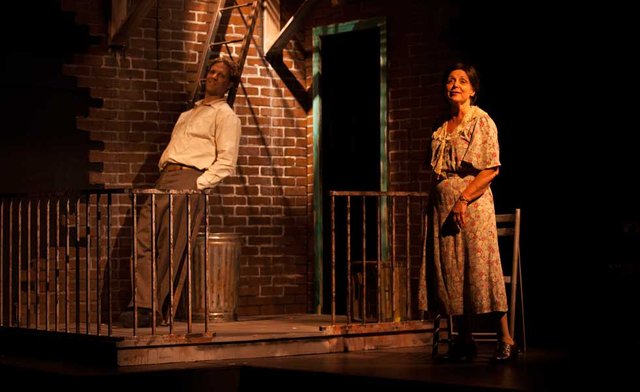
The Fire Escape (a pretty big part of the play and a symbol for their desire to run away) source
And Tom, in the end, repeats his father’s actions. He leaves them, becomes the abandoner himself and thus, strengthens Laura and Amanda’s destiny of always being abandoned.
‘The Glass Menagerie’ is a veritable roller-coaster of emotions and you will undoubtedly leave the theater with one or two questions on your mind – both about the play and about yourself. So, I highly encourage you to give it a go.
As always, it’s a great read, but like most theater plays, maybe a better idea would be to see it – either locally, if available, or online. I understand there was a 1974 TV version with Katharine Hepburn as Amanda Wingfield.
So, what do you think? Have you seen/read ‘The Glass Menagerie?’
References: 12 3 4
Original Thumbnail Pic
Click on the coin to join our Discord Chat

Witness proposal is here:
Go To Steem Witness Page
In the bottom of the page type: adsactly-witness and press vote.

Use small letters and no "@" sign. Or, click here to vote directly!
Thank you!
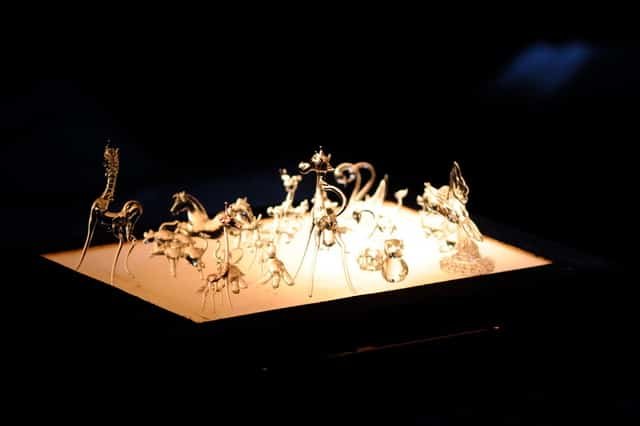
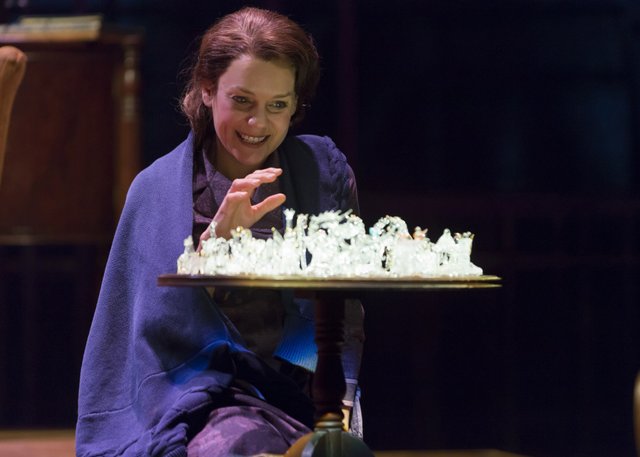
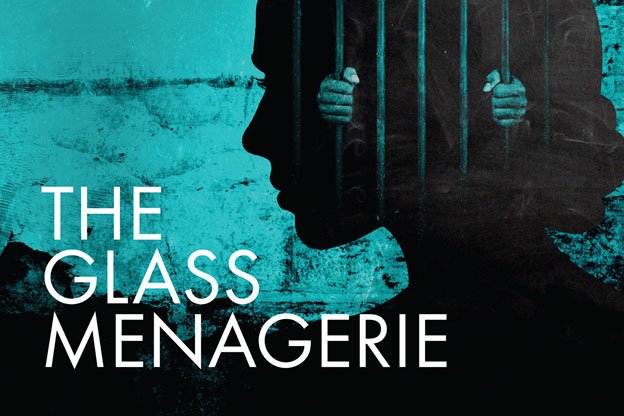
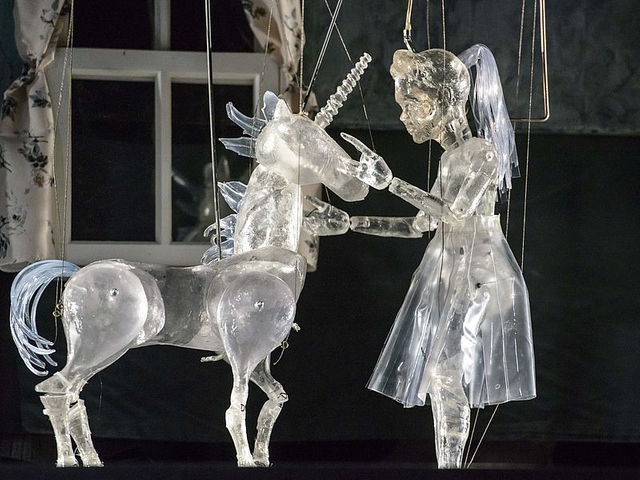
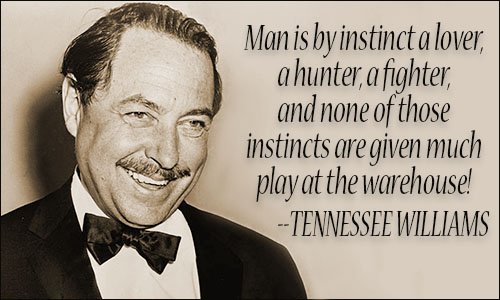
With this review you reminded me that I did a paper on The Glass Menagerie in college. I remember that the most interesting thing was the conclusions reached at the end, with that broken glass unicorn; broken like all characters, like all human beings. Unfortunately, I haven't had the opportunity to see the staging of this play. I like that you mentioned the decoration of the piece, in this way you can imagine a little how some directors solve the mise en scène. I really liked this post, @honeydue.
I don't know the play The Glass Menagerie in text or theatrical representation, but your excellent presentation and interpretation of content, @honeydue, allows me to get closer to its quality. I liked that you stopped at their interpretation and gave us some quotes from their text, as they illustrate us with respect to verbal style. Tennesse Williams, as in other of his works and other American playwrights, confronts us with the harsh realities of the family nucleus and its influences on the lives of individuals. Escape will be a form of immediate liberation, but it will always be burdened with guilt (as in Tom's case). Sometimes the possibility is given to recognize and "break" the shadow in our lives (as in Laura's case).
Thank you for your good post, @honeydue. Greetings.
Great work
Dear #adsactly , Your writing is painful and wretched. Thank you very much for such awareness and educational posts.